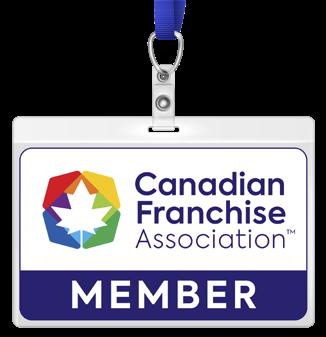
6 minute read
Essential Legal Update: Arthur Wishart Act
Essential Legal Update: Arthur Wishart Act Updates to the “AWA” expected in 2020
BY CLARK HARROP, PARTNER AT DALE & LESSMANN LLP
With their "Open for Business" motto, Ontario's Conservative government has announced ambitious plans to reduce red tape and improve the environment for business in Ontario. Earlier in 2019, the government formed the Business Law Modernization and Burden Reduction Council (the “Council”) as a short-term advisory body comprised of lawyers and a former Justice of the Ontario Superior Court of Justice. The Council is the successor to the earlier Business Law Advisory Council and shares a similar mandate: to make recommendations to the Government on how to modernize Ontario's corporate and commercial statutes to support the Government's commitment to reduce the burden on business and foster a good business climate in Ontario.
Amongst the first recommendations made by the Council to the Ministry of Government and Consumer Services (the "Ministry") were changes to the regulations under the Arthur Wishart Act (Franchise Disclosure), 2000, SO 2000, c 3 (the “AWA”). Changes to the regulations under the AWA are expected to happen in 2020, following the recent completion of a public consultation process by the Ministry. For those of us who follow these matters closely, the AWA was last amended in 2017 when the previous Liberal government passed the Cutting Unnecessary Red Tape Act (“CURT”), which received royal assent in November of 2017. Many will recall those changes were welcomed at the time, but remain ineffective because they were pending the enactment of enabling regulations. The Ministry now looks set to bring forward the enabling regulations.
So what can we expect to see when the new regulations are released to the public for comment? The Ministry's stakeholder consultation process gives us a good indication of the changes we are likely to see. In November of 2019, the Ministry sought input from stakeholders and the public on the following items: 1. the manner of determining the “Total Initial Investment” for the purposes of the minimum and large investment thresholds; 2. whether there should be changes to the minimum and large investment threshold amounts for exemptions from disclosure; 3. the amount of the deposit payment under which fully refundable and non-binding deposit agreements would be exempt from disclosure; 4. the content requirements for a Statement of Material Change; and 5. the accounting standards for financial statements that franchisors must include in a disclosure document provided under the AWA. It now appears likely that we will see the enabling regulations this year. As a result, we may expect clarity on both the minimum investment exemption (sometimes referred to as the de minimis exemption) and the large investment exemption (sometimes referred to as the substantial investment or sophisticated franchisee exemption).
For instance, we are likely to see regulations that prescribe the manner of determining the total initial investment, which may include an open-ended list of expenditures similar to the required disclosure pertaining to the franchisee's costs of establishing (or acquiring) the franchise.
More importantly, many hope that the regulations will clearly provide that the exemption will be based on the total initial investment contemplated by the parties prior to entering into the franchise, and not the amount actually invested. For either, the minimum investment exemption or the large investment exemption to be useful, there must be certainty prior to entering into the franchise that the exemption will be available. Moreover, the exemption cannot be "lost" in the event the actual total initial investment turns is different from that contemplated by the franchisor and franchisee at the time the franchise is granted or acquired. The Ministry is aware of these practical concerns and may respond to them with the new regulations.
We may also see changes to the minimum investment threshold (currently $5,000) and the large investment threshold (currently $5 million). It is also possible that we may see some clarification that the large investment exemption is available for multi-unit or multi-franchise transactions where: (1) a single transaction encompasses multiple locations or territories; and (2) the total purchase price across all locations or territories is in excess of the large investment threshold. As there are few single-unit or territory franchises that trade for valuations in excess of $5 million (or such other threshold as the government may choose to include in the regulations), this clarification will assist parties in confirming their ability to rely upon the exemption in multi-unit transactions.
We expect the new regulations will prescribe the maximum refundable deposit that can be received by a franchisor from a prospective franchisee in advance of the disclosure document being delivered. The AWA was amended to permit pre-disclosure refundable deposits as part of the CURT amendments in 2017, but without the enabling regulations, it has not been permissible to collect refundable deposits from prospective franchisees in Ontario. This change would bring Ontario in line with other provinces that permit the collection of pre-disclosure refundable deposits. Presently, those include British Columbia, Alberta, and Manitoba, along with the non-disclosure provinces (Saskatchewan, Quebec, Nova Scotia, and Newfoundland & Labrador).
With respect to Statements of Material Change (“SOMC”) it is uncertain whether the regulations will provide for use of a prescribed form or whether Ontario will simply prescribe content (as done in B.C.). The latter approach would permit the development of multi-jurisdictional forms of SOMC. Either change is likely to be an improvement over the current uncertainty that results from there being no prescribed form, but many will be disappointed if the approach taken by the Ministry results in another prescribed form with only minor differences from the prescribed forms required in other jurisdictions. The Ministry also sought input from stakeholders with respect to the accounting standards for financial statements that are included in disclosure documents delivered pursuant to the AWA. The regulations under the AWA currently require audited or review engagement financial statements prepared in accordance with Canadian generally accepted accounted standards ("GAAP") and audited or reviewed under Canadian generally accepted auditing standards, or those that are "at least equivalent". While the idea of an equivalency standard is theoretically helpful to those franchisors whose financial statements are prepared in accordance with U.S. GAAP but has practical challenges. There is considerable uncertainty whether U.S. GAAP financial statements meet the “at least equivalent” threshold, as there are a number of differences between Canadian GAAP - either International Financial Reporting Standards (IFRS) or Accounting Standards for Private Enterprises (ASPE) - and U.S. GAAP, which in practice means that franchisors with U.S. GAAP financial statements are typically advised to include supplemental reports from Canadian accounting/audit firms that provide commentary and additional information necessary to make the U.S. GAAP statements equivalent to those prepared under Canadian GAAP. The Ministry is expected to consider changing the regulations under the AWA to permit the use of financial statements prepared in accordance with U.S. GAAP and the corresponding auditing standards. Such a change would bring clarity and would make it easier for U.S.-based franchisors to enter the Ontario market.
While these changes to the AWA’s regulations may be seen as "mere" housekeeping changes, they will – if implemented – provide some much-needed clarity on the large investment and minimum investment exemptions. In addition, a significant hurdle to using U.S. GAAP financial statements will be removed.
ABOUT THE AUTHOR Clark Harrop is a Partner with the firm of Dale & Lessmann LLP in Toronto.
If you’re a franchisor operating in or expanding to Canada, you need to be familiar with provincial franchise legislation or your business and reputation could be at risk. To help our members stay current on the latest laws and legislative developments in each province, the CFA has compiled all provincial franchise legislation, regulations, and consultation papers in one convenient portal. Don’t put your business at risk – get up to speed on Canada’s franchise laws now. Head to www.cfa.ca/our-services/advocacy/franchise-legislation/ to bring yourself up to speed with vital franchising legislation from province to province.











